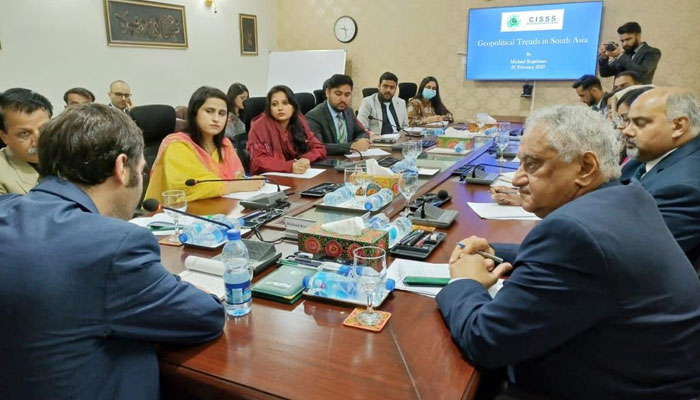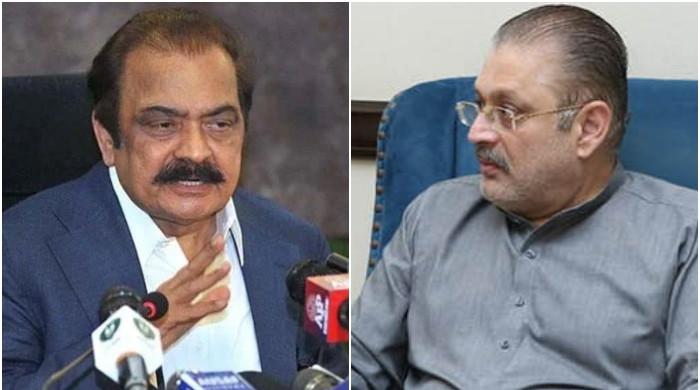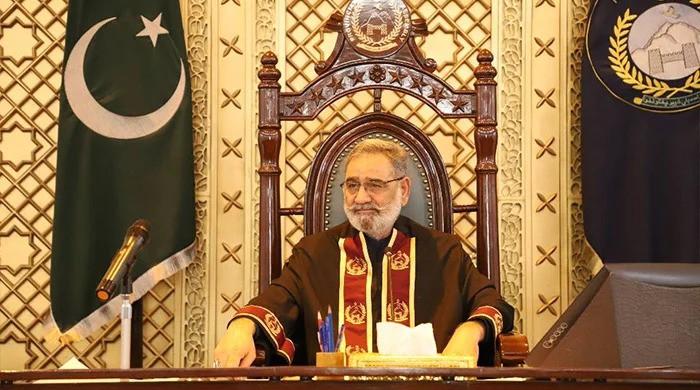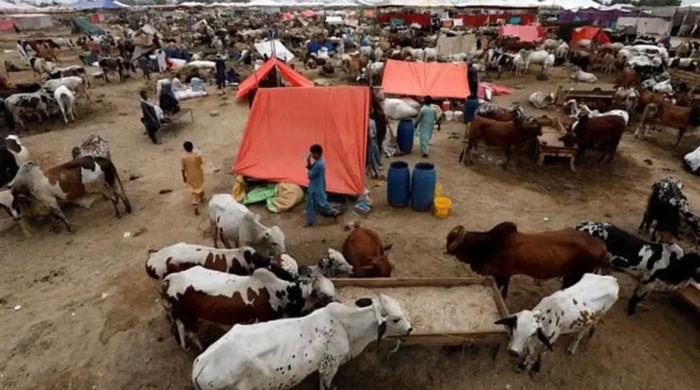US keen to have good ties with Pakistan: Michael Kugelman
India is not in a position to be a "net security provider" in the region, says Wilson Center scholar
February 24, 2023

Michael Kugelman, a leading specialist on Afghanistan, Pakistan and India and their relations with the US, said that Washington is keen to have amicable relations with Islamabad and considers it a key ally in South Asia.
While interacting with researchers at the Center for International Strategic Studies Sindh (CISSS), he told the audience that the "US is keen to have good relations with Pakistan, which is the only US ally in South Asia despite the very close relationship between Washington and New Delhi", according to a statement issued by the Karachi-based institute.
Kugelman — director of Wilson Center's South Asia Institute — also shared his perspective on the impact of sharpening and rising geopolitical tensions among big powers in the region.
In the context of the US efforts to counter China and China-India border tensions, he explained the rationale for the growing defence partnership between Washington and New Delhi, saying it is a conclusion of four foundational agreements between the two countries, including the Quadrilateral Security Dialogue (QUAD) and the Indo-Pacific Strategy.
However, he noted, India is not in a position to be a "net security provider" in the region as envisaged by the US in its "Indo-Pacific Strategy".
Kugelman, while discussing Indo-China tensions, underlined that despite some "hot borders" in the region including India's skirmishes with China, the Line of Control (LoC) had remained calm since early 2021, due to an agreement between Pakistan and India to observe ceasefire along the LoC.
He concurred with the idea that India did not have a strategy to deal with a two-front situation, confronting both Pakistan and China at the same time.
In response to questions about the Western silence on human rights abuses by India against its minorities and the people of Indian Illegally Occupied Jammu and Kashmir (IIOJK) and the selective application of the "rules-based international order", the scholar stated that foreign policy decisions in key global capitals were made on the basis of "realpolitik" — a pragmatic approach regardless of ethical considerations.
While discussing the future prospects for young researchers of Pakistan in the US, Kugelman informed that under its "Pakistan Initiative", Wilson Center was offering fellowships for thought leaders from Pakistan
He also expressed interest in establishing a collaborative relationship between CISSS and Wilson Center which could include joint research projects.











